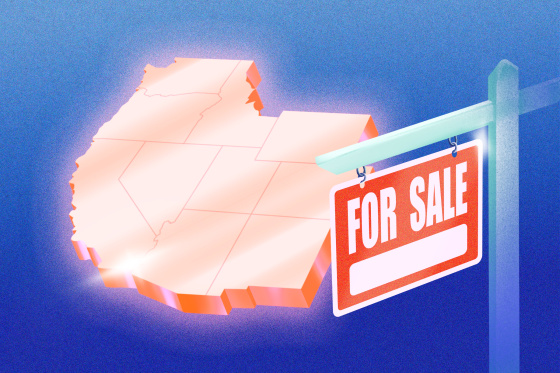Senate Republicans are rushing to complete work on President Donald Trump’s major spending package. Of the many moving pieces, a proposal included in the Senate Energy and Natural Resources Committee’s portion of the budget reconciliation bill stands out. If passed as written, it would make at least 250 million acres of public land available for sale, mandating at least 2 million of that be sold over the next five years.
The fire sale of public lands is something of a pet project from the committee’s chair, Utah Republican Sen. Mike Lee. Lee and other supporters argue that the provision would help alleviate the nation’s housing crisis. But, in practice, the sale of these lands would more likely be yet another boon to the wealthy in a bill already designed to facilitate a massive upward transfer of wealth.
The sale of these lands would more likely be yet another boon to the wealthy in a bill already designed to facilitate a massive upward transfer of wealth.
Lee has long argued that the federal government owns too much of the land in the western United States. As he wrote in a Deseret News op-ed last year, he believes the West’s “vast federal estate is reserved for the enjoyment of the very few: an elite who want to transform the American West into picturesque tourist villages and uninhabited, but nonetheless beautiful, vistas.” Accordingly, in the previous Congress, he introduced a standalone version of the provision, called the HOUSES Act, promising that his legislation would serve as a “new Homestead Act” to spur greater development of the West.
Lee’s section of the reconciliation bill would force Interior Secretary Doug Burgum and Agriculture Secretary Brooke Rollins to swiftly designate broad tracts of federal lands in 11 Western states “for disposal.” State and local governments or other “interested parties” could also nominate tracts to be put up for auction, with a requirement that the land be used “for the development of housing or to address associated infrastructure to support local housing needs.” In doing so, interested buyers would have to explain how their planned development would address those needs, including boosting the housing supply and/or affordability.
A fact sheet from Lee’s committee cites a Congressional Budget Office estimate that the proposal would generate between $5 billion to $10 billion over the next 10 years and claims that the sale of that land would “increase the supply of housing and decrease housing costs for millions of American families.” But the Wilderness Society warns that the updated bill “lacks safeguards to ensure land is used for that purpose, and it sets up a system where lands could be sold or resold for non-housing uses after just 10 years.”
Any funds the Treasury takes in will quickly be offset by the cost of the enormously expensive tax cuts at the bill’s heart.
The Center for American Progress likewise noted that Lee’s text would be an end run around the current process for identifying lands for disposal, which requires public notice and input before federal land can be sold. Further, the parcels purchased for housing “would carry no requirements for affordability or density, and there would be no significant guardrails to prevent valued public lands from being sold for trophy homes, pricey vacation spots, exclusive golf communities, or other developments.”
The Senate’s version of the provision goes further than one the House rejected, offering up almost four times as much land for sale. Crucially, the Senate bill would exempt one Western state: Montana — and one of that state’s congressmen, Rep. Ryan Zinke, led the opposition to the House version. But leaving out the state still might not be enough to sway the Montana delegation to support Lee’s provision. Zinke’s spokesperson recently told The New York Times that the former interior secretary “remains a hard no on any bill that includes the large-scale sale of public lands.”
Unlike some of the other provisions tucked into the House bill, this one seems likely to survive the Senate’s specific rules for reconciliation bills, thanks to its promise to raise revenue. But any funds the Treasury takes in will quickly be offset by the cost of the enormously expensive tax cuts at the bill’s heart.
As the Wilderness Society warned, letting this provision pass “sets up a precedent to quickly liquidate huge chunks of America’s treasured lands in the future whenever politicians have a pet project to pay for.” In this case, it would entail “disposing” of untouched nature in favor of newly built McMansions and second homes that their wealthy owners can afford with their newly boosted bank accounts.

